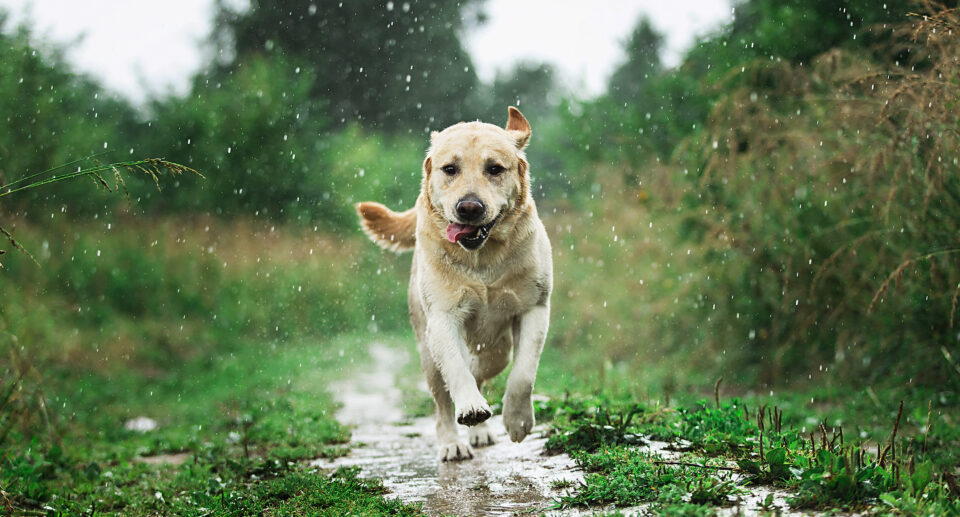How To Stop Summer Ear Infections in Dogs

During the dog days of summer, you may look forward to barbecues, swimming, hikes, and – uh oh – yet another trip to the vet. If red, itchy, smelly ears are the bane of your dog’s summer fun, read on to learn why dogs get so many ear infections in the summer and how to get ahead of summer ear infection season.
4 Reasons Your Dog Gets Ear Infections in The Summer
Ear infections are typically caused by bacteria and fungi that are naturally present on your dog’s skin. Normally, these microorganisms are in balance with beneficial bacteria.
In the summertime, though, itch-causing bacteria and fungi can thrive with an increase in warm, moist conditions. Overgrowth of harmful microorganisms leads to itching and painful inflammation of the delicate skin of your dog’s outer ear.
- Humid, rainy weather. In year-round humid climates, ear infections affect as many as 50% of dogs. For those of us with humid summers and cold winters, though, we might see an increase in ear infections in the summer. Humid weather and rainy day walks can lead to the perfect conditions for yeast and bacteria to overgrow.
- Swimming. If your dog swims in a pool, lake, or at the beach, they’re bound to get extra moisture inside their ear, which can lead to an infection within a few days of swimming.
- Frequent baths. Even if your dog does not swim, they may be exposed to water more often if they take more baths in the summer. You may need to bathe your dog more often if they come in contact with mud, dirt, pollen, fleas, and other gross stuff on walks, hikes, and other fun outdoor excursions.
- allergies. Food sensitivities and environmental allergies can actually make your dog more susceptible to ear infections, especially those caused by yeast overgrowth. While allergy-related ear infections can affect dogs year-round, your dog may be exposed to more environmental allergens like pollen, mold, and mildew in the summertime.
Stop Summer Ear Infections in Dogs
The common denominator in most dogs that experience frequent ear infections in the summer is increased moisture. You may significantly decrease or even eliminate summer ear infections by simply keeping your dog’s ears clean and dry.
Some dog parents swear by snoods and other head coverings to keep moisture from entering the dog’s ears while swimming or when walking in the rain. If your dog’s ears do get wet, you can gently blot the outer ear with a towel.
During baths, avoid wetting your dog’s head. Gently wipe their face with a damp washcloth, if needed. Or, you might block your dog’s ear canals with cotton balls during bathtime, just make sure to remember to remove them.
Cleaning Your Dog’s Ears
Your dog’s ears are designed to be self-cleaning. Their earwax helps protect the delicate skin of the ear canal from moisture. Excessive cleaning can strip the natural wax barrier, making the ear more prone to drying, cracking, and infection.
That said, there are times when it’s necessary to clean your dog’s ears. You can clean their ears to help eliminate excessive moisture, as well as bacteria and yeast buildup before an infection can occur. Only use ear rinse for dogs, which contains conditioning agents that gently cleanse without stripping the ear of moisture and wax.
It’s crucial that you do not attempt to clean your dog’s ears if they are already showing signs of an infection. Cleaning an infected ear can flush bacteria or fungus deeper into the ear canal, potentially causing a serious infection. See your veterinarian as soon as possible if your dog has odor, redness, itching, or discharge coming from their ear. An untreated ear infection can lead to permanent hearing loss.
VISION
Every pet deserves to live a long, happy, healthy life.





